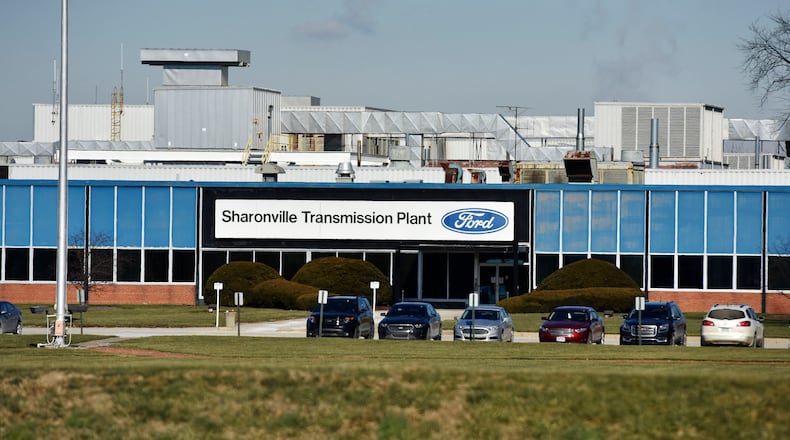“Given declining consumer demand and product profitability, the company will not invest in next generations of traditional Ford sedans for North America,” the automaker said. “Over the next few years, the Ford car portfolio in North America will transition to two vehicles — the best-selling Mustang and the all-new Focus Active crossover coming out next year.”
MORE: Local DP&L rate hearings: What to know
Ford also said it is exploring “new ‘white space’ vehicle” designs that combine car and utility characteristics such as “higher ride height, space and versatility.”
“We are committed to taking the appropriate actions to drive profitable growth and maximize the returns of our business over the long term,” said Jim Hackett, Ford president and chief executive.
MORE: Scene75 snatches up Columbus department store
Ford has a transmission plant in Sharonville, a plant that has about 1,660 workers.
The plant, which has said it is hiring, makes the transmission for the F-Series Super Duty truck and gear sets for additional models, as well as production for a new transmission family and additional gear sets for other vehicles.
The plant is less that three miles south of Butler County’s border with Hamilton County.
A Ford spokeswoman Thursday said she could not offer any details on how specific plants -- other than our assembly plants -- will be affected by the change.
Michelle Krebs, an executive analyst with Autotrader, said Daimler Chrysler made a similar move at least two years ago -- “and has been very successful doing so.”
Ford isn’t the first and won’t be the last domestic automaker to concentrate on trucks and SUVs, she said.
“I think General Motors will probably be pruning its line in a while,” Krebs said.
This kind of move feels permanent, she said. “I think it’s pretty much a structural change.”
Today’s SUVs get far better fuel economy then they did in earlier iterations, and Ford is adding hybrid options to its volume models, even the F-150, Krebs said.
Those moves may shield the automakers somewhat if gas prices continue to rise.
Fuyao Glass America, which has more than 2,000 employees in Moraine, supplies auto glass sets for the Ford F-150 truck. Jeff Liu, Fuyao Glass America president, said Thursday he did not expect Ford’s announcement to harm or cut production at the company’s West Stroop Road plant.
Ford had a good first quarter, saying its revenue was up seven percent year over year. Net income of $1.7 billion represents a nine percent increase year over year, “more than explained by a lower tax rate,” Ford said.
Earnings before taxes and interest was put at $2.2 billion, down from a year ago, but Ford blamed commodity cost increases and adverse exchange rates for that.
About the Author

